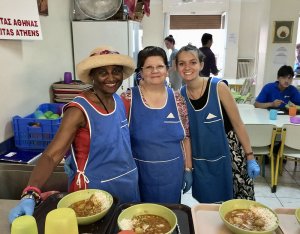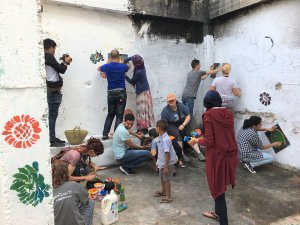Nov. 4, 12:30-2 p.m. — Osterlin 205
Join us on November 4 as we discuss engaging options for integrated service learning across college disciplines. View the revised Service Learning Manual, learn how students can accumulate service learning hours on their academic transcript, and listen to how service learning has been incorporated into the curriculum from a panel of faculty and community partners eager to share how they’ve made it happen both locally and globally. In addition, members of the office of International Services and Service Learning and the Experiential Learning Institute will be there to help you kick-start opportunities in your own classroom!
Service learning has been defined as “a teaching and learning strategy that integrates meaningful community service with instruction and reflection to enrich the learning experience, teach civic responsibility, and strengthen communities.”



Northwestern Michigan College has a rich culture of service that often goes undocumented or publicized on our campus and in the surrounding community. Our mission commits our institution to deliver learning that transforms lives and enriches our communities.
As part of the college’s new strategic plan, NMC Next, we pledged to our students an empowering environment that encourages learners to discover new knowledge and explore questions related to their future careers and life’s work; and a meaningful education that equips learners with relevant skills and supports them in developing their sense of purpose. This pledge can be realized through integrated service learning.
A national study by Learn and Serve America shows that service learning has many benefits. From small, one to two-week modules to semester-long programs, effective service-learning programs improve grades, increase attendance & persistence, and develop students’ personal and social responsibility [Learn and Serve America, 2013].


I teach economics. Through the discussion forums in my course that ask students how the models of economics can be applied in their lives, they relate their experiences. They provide service every day whether for pay or not.
Whether a person is paid for their service (with college credits or pay) or does it for free makes a difference in how they are rewarded. What unpaid volunteers gain from their service is difficult to quantify, but what they see from their accomplishments and the thanks from the people who count on them is critical.